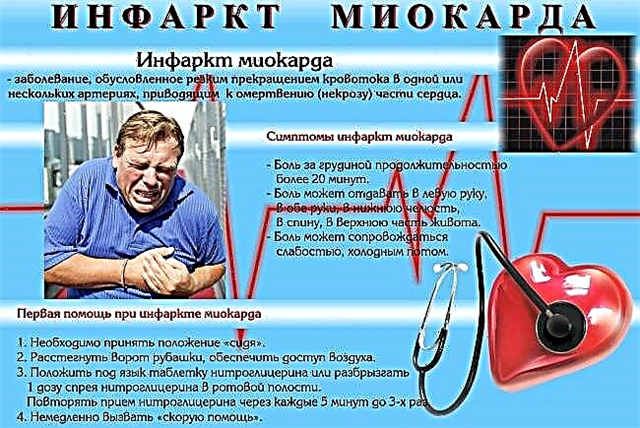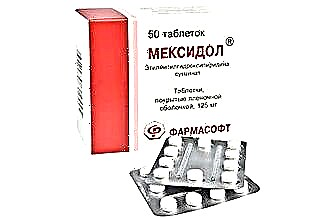Causes
 The ability to distinguish between taste and smell is truly invaluable - it allows you not only to enjoy food or beauty products, but also to avoid many dangers. People get used to focus on taste and olfactory sensations since childhood. What to do if with a runny nose both taste and smell disappear? There is no universal way of recovery - in order to choose a treatment, you need to understand the true cause of the development of disorders.
The ability to distinguish between taste and smell is truly invaluable - it allows you not only to enjoy food or beauty products, but also to avoid many dangers. People get used to focus on taste and olfactory sensations since childhood. What to do if with a runny nose both taste and smell disappear? There is no universal way of recovery - in order to choose a treatment, you need to understand the true cause of the development of disorders.
First you need to understand the terminology. If the sense of smell is impaired, we can talk about hyposmia - a weakening of olfactory sensitivity, or anosmia - its complete disappearance. Decreased taste sensitivity is referred to as hypogeusia, absence - ageusia. The sense of taste is directly dependent on the sense of smell: the perception of taste is largely determined by the ability to distinguish the smell of food. Therefore, with the pathology of the upper respiratory tract, not only olfactory, but also gustatory sensitivity changes.
Why do taste and smell disappear with nasal congestion? Among the probable reasons:
- Infectious rhinitis.
- Allergic rhinitis.
- Vasomotor, including drug-induced rhinitis.
- Various types of sinusitis.
- Neoplasms in the nasal cavity.
Most often, doctors are faced with the fact that the olfactory and gustatory sensations are disturbed with a cold. Such changes, as a rule, are of a short-term nature and are not a cause for concern, since we are talking about the so-called respiratory conductive anosmia in combination with hypogeusia. This condition is associated with a violation of the flow and distribution of air saturated with aromas in the nasal cavity. Odorous substances cannot reach the olfactory zone due to pronounced edema, but with the timely elimination of the phenomena of the common cold, the pathology is completely reversible.
Much more dangerous are perceptual disorders of smell and taste associated with damage to the olfactory nerve - olfactory neuritis. It is worth thinking about this pathology if the scent has disappeared due to the flu, acute or chronic sinusitis. Also, damage to the receptor apparatus should be suspected if, due to a runny nose or other symptoms, the patient has been taking medications, in particular, the antibiotic Streptomycin.
Thus, the loss of smell and taste due to a runny nose can be explained by a mechanical obstacle to odoriferous substances (edema) or damage to the olfactory nerve.
How to be treated
What to do if the ability to distinguish between taste and smell with a cold is impaired? How to restore a lost sense of smell? It is worth immediately contacting a medical institution. The algorithm of actions depends, first of all, on when the violations occurred:
- against the background of pronounced symptoms of rhinitis;
- after the resolution of the pathological process (disappearance of the common cold).
In the first case, the cause of the unpleasant symptoms is significant swelling of the mucous membrane. How to restore the sense of smell, and with it the ability to perceive taste? It is necessary to fight inflammation by finding out its cause. With infectious and allergic rhinitis, as the activity of the pathological process subsides, the ability to recognize taste and aroma will return on its own.
What if the sensitivity has not recovered, and after a runny nose, the sense of smell has disappeared? Olfactory neuritis can be primary (intoxication, influenza) and secondary (with purulent sinusitis, tumors of the nasal cavity and paranasal sinuses). Confirmation of the diagnosis by a doctor requires immediate action - the pathology is best treated at an early stage of development. Hospitalization is carried out in a hospital department, an intensive course of treatment.
Conservative and surgical treatment
How to restore the sense of smell with a cold? If the olfactory receptors are OK and the only reason for the odor recognition is swelling, rhinitis should be treated. Recommended:
- rinsing the nose with saline (Aqua Maris, 0.9% sodium chloride solution);
- symptomatic use of decongestants (Xylometazoline) with complete cessation of nasal breathing;
- correction of indicators of humidity and air temperature in the room, elimination of dust.
Sometimes with an infectious rhinitis, local anti-inflammatory, antiseptics (Pinosol), immunomodulators (IRS-19) are needed. In the treatment of allergic rhinitis, antihistamines (Cetrin, Claritin), topical glucocorticosteroids (Nasonex) are used, but oil-based drugs are contraindicated. If rhinitis is just one symptom of an infectious disease, antibacterial drugs may be needed.
Surgical intervention may be necessary if the feeling of nasal congestion and loss of olfactory and gustatory sensitivity is associated with hypertrophy of the nasal mucosa, an increase in the volume of the turbinates, and anatomical disorders. It is applied:
- submucous electrocautery of the turbinates;
- conchotomy;
- resection of the nasal concha bone skeleton.
All of these manipulations require adequate pain relief. The need for surgery is discussed individually with the attending physician and usually arises with chronic pathological changes in the nasal cavity.
If you managed to restore the olfactory sensations with colds rhinitis, you should also count on the simultaneous return of gustatory sensitivity.
How to get the taste back? If there is no direct damage to taste buds, taste sensitivity will be restored simultaneously with olfactory sensitivity. Attempts to irritate the mucous membrane of the nose or tongue (for example, with onion juice, lemon) will not lead to improvement - such remedies can only increase the swelling and provoke a deterioration in the condition.
Olfactory neuritis
What should be done for those patients who have a damaged receptor apparatus? How to restore the sense of smell after a runny nose with olfactory neuritis? The treatment uses:
- Injection of glucocorticosteroids (hydrocortisone) into the nasal mucosa.
- Inhalation administration of Hydrocortisone and Dimexide.
- Introduction of Pyrogenal, Neostigmine, Vinpocetine, glucose solution.
- Physiotherapy, vitamin therapy.
If the violation of smell and taste is associated with the transferred flu, local administration of antiviral agents (Interferon) can be used. For some patients, spa treatment is recommended after a course of inpatient therapy.
Unfortunately, the complete restoration of the lost functions of perception in olfactory neuritis is not always possible. The prognosis for recovery depends on the stage of development of the disease, the individual characteristics of the patient's body. If olfactory neuritis is secondary, it is also important to eliminate the primary cause - for example, to sanitize the cavity of the affected paranasal sinus in chronic sinusitis.



